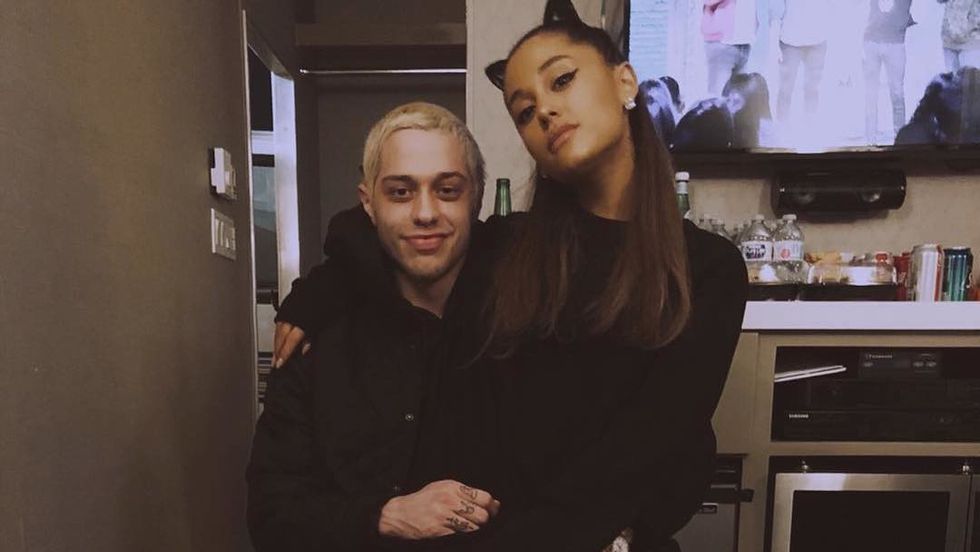Most frequent Twitter users are familiar with influential Kanye West's Twitter outbursts — long rants in the form of successive tweets. Just a few days ago West engaged in Twitter war with another prominent rapper, Drake, and was quickly criticized for his excessive stream of commentary. This is not the first time West has been under fire on social media. His previous support for President Trump and other controversial opinions have sparked ongoing debates amongst many about how seriously he should be taken in our ever-changing culture.
It is clear how West views himself, and in his various tweets, he reminds his viewers of the influence he has had in both the music and art world, as well as on other artists. West's tirade against Drake shifted into his opinions on mental health as soon as the Twitter backlash began. West's posts imply that he believes that he is breaking down barriers for mental health stigma by openly expressing his opinions and letting the public see the side of him that some would label "crazy." However, many have criticized this viewpoint.
West's tweets suggest medication holds people back from their true artistry and versions of themselves, and this claim holds a potentially dangerous weight. In our fight to remove the stigma from mental illness, it is important to not numb society to its violence and destruction. The struggle is not to be romanticized and while West seems to understand this, statements that de-validate medication — a lifesaving resource for many — could have a harmful effect on the way we perceive mental illness. Many artists this year have released singles directly addressing their personal struggles, such as XXXTentacion, Juice Wrld, and Lil Peep. Although this movement has in some ways normalized mental pain and allowed many to feel less alone in their struggle, it is arguable that in order to make sure mental illness does not become romanticized by mainstream media we cannot only talk about pain, we must also talk about how to address it in a healthy way.
In Twenty-One Pilots' new album, "Trench," the song "Neon Gravestones" is a call to support those crying out for help while they are still alive, and not to only commemorate them once they lose their internal battle. This message is crucial and applies not only to West but to every celebrity in the spotlight, and to all of our own friends and family that we see hurting. In response to West's argument with Drake, pop singer Ariana Grande urged her fans to ignore the "grown men" fighting on Twitter and instead listen to her new single, Imagine. Grande is no stranger to cyber hate. After the death of her ex-boyfriend Mac Miller, many blamed her for his accidental overdose.
After her recently broken-off engagement with comedian Pete Davidson, many Grande "fans" began sending hate the way of Davidson, accusing him of causing the young singer more pain. In response, Grande released a statement imploring her fans to leave Davidson alone, but his recent social media post alluding to suicidal thoughts makes it clear that the messages have overwhelmed the SNL star. Davidson has been very open with his battle with borderline personality disorder, and the comedian supported Kanye's response to Grande and the public that stated mental health should not be treated as a joke.
Despite this seemingly noble message, Davidson has joked many times about mental illness in his career as a comedian. West's open support of President Trump does not seem to be in the best interest of the minority groups that Trump's policies hurt, and who are at increased risk of mental struggle due to their oppression. Grande has also publicly expressed the pain her anxiety and this devastating year has led to, but she too made a joke at the expense of West. There seems to be no one with power in popular culture who knows how to deal with the discussion of mental illness in a socially acceptable, sensitive manner. So, we can ask this question: Is there a right way to handle something that so many barely can make sense of within their own heads?
As our society changes and progresses we too must learn how to adapt and how to engage in positive discourse when handling difficult topics. Our attempt to decrease stigma increases conversation, and while we should all be free to feel our pain and not be judged for it, I believe it is important that those in power be careful when exercising freedom of expression. Their influence will contribute to how we see and deal with mental illness in the future and society must not only be reminded that pain exists, we must also be reminded of the steps that can be taken to try to reach a happier state of being. So yes, Kanye West, you shouldn't be judged for saying what you feel. Just remember whose expense it may be at.

















